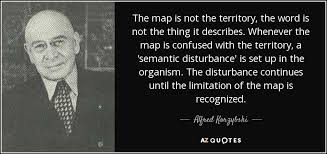Alfred Korzybski of General Semantics says that we ought to
be more thoughtful about the language we use and to be mindful of the messages
we are trying to convey. Too many and inappropriate words can confuse
understanding and he suggests that we develop a scientist sensibility
(Korzybski, 2000) for listening. He talks about creating a verbal pollution
free zone by asking three questions that encourage specific answers. They are:
1. What do you mean?
2. How do you know?
3. What did you leave out?
Rational Emotive Behaviour Therapy, created by Dr. Albert
Ellis, incorporates Alfred Korzybski's ideas in his approach to psychotherapy
and can be applied in counselling practice when working with young students.
Mary is an early childhood student who is not travelling OK.
The teacher says she is self-critical and doesn't want to do things.
We talk about Brain Friend and Brain Bully thinking. BF
makes OK feelings and behaviours and BB causes us to feel not OK and we don't
act as we could e.g., to try new things
We talk about Mary and how's she's been feeling and agree
they are not helpful feelings she feels. She also says that she hasn't been doing her work
and the teacher is wondering why. We talk about how BB thinking could be making
her feel bad and she says she thinks 'I can't do this. I'm dumb.'
Maybe BB is tricking her into believing that she is totally
dumb and hopeless. So, we say out loud together, 'I am dumb and hopeless.' We
agree that it’s a Brain Bully way of thinking and so we decide to work on this
together and we use the questions introduced above starting with #1
What do we mean?
We both answer this together and say things like 'because I
am too scared to try, I am dumb and stupid.' Then we ask ourselves the
question:
How do we know?
We say 'we are stupid because we are too scared to try. The
teacher says we are not progressing and she tells mum she feels concerned so it
must be true.' We think this kind of thinking is Brain Bully trying to trick
us. We say together, 'BB is trying to trick us,' so we ask ourselves:
What did we leave out?
We talked about all the things we can do and made a list and
we agreed that this proves we can't be totally dumb and just because we might
feel worried about failing at something it is not true to say we are no good
and that we shouldn't try.
We said that we'll work at the things we aren't so good
at but we'll try to remember all the things we can do which we forgot to
remember!
The word is not the person so why can a child believe they
are the word 'dumb' when all the evidence suggests otherwise?
Food for thought.

Comments
Post a Comment